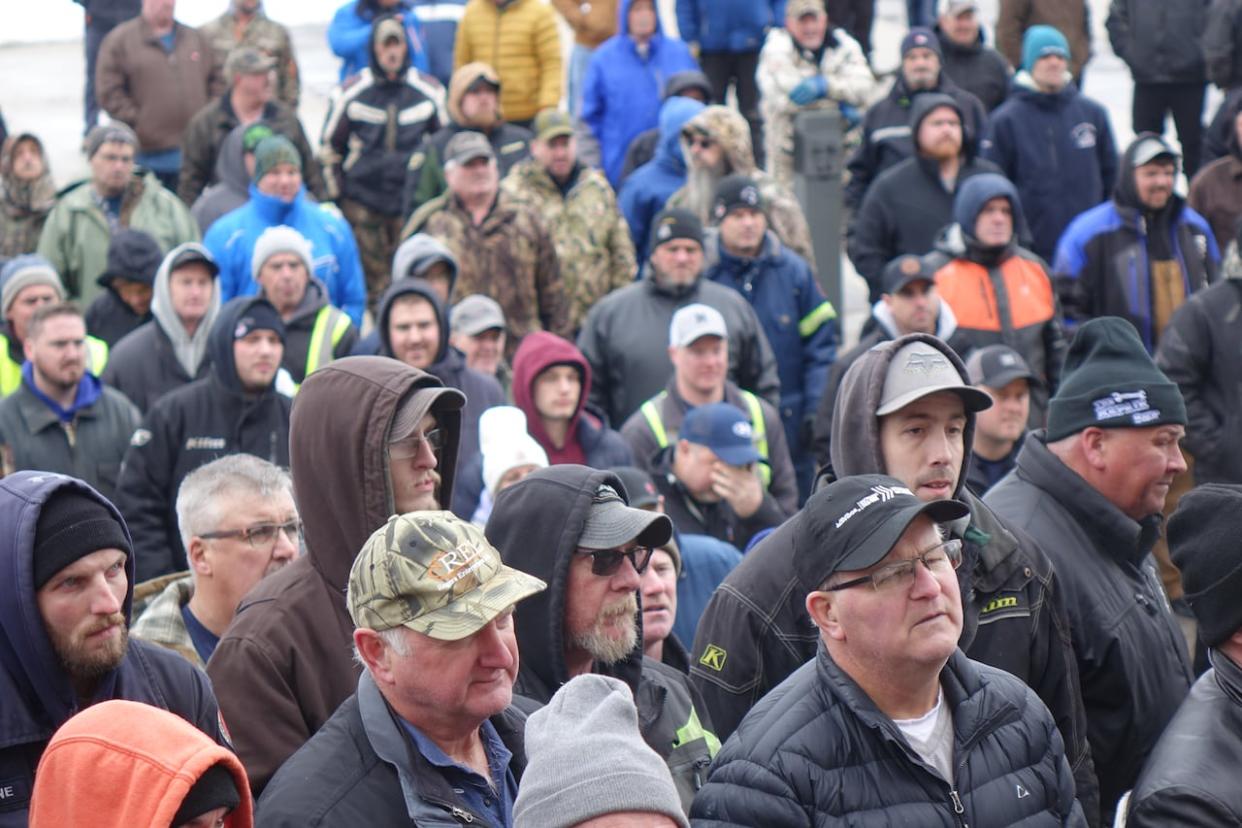FFAW pleads with fisheries minister to open market, arguing harvest too much for local processors


The FFAW said this week the fish industry in N.L. is desperately in need of competition. (Patrick Butler/Radio-Canada)
The Fish, Food & Allied Workers union (FFAW) formally urged Fisheries Minister Elvis Loveless to open the fisheries to outside buyers in a letter on Friday, following a week of intensifying protests from harvesters.
The letter is a response to Loveless's own letter from Thursday evening, in which he requested a plan from the union that would guarantee the jobs of all FFAW members, harvesters, and fish plant workers if the market opens.
"Any decision to allow outside buyers must consider the impacts on all partners in the seafood industry, and particularly on fish plant workers," Loveless says in his letter, adding that if such a plan is presented by the FFAW, the government will consider opening the market to outside buyers for snow crab.
"More competition and market access for harvesters is desperately needed," the union wrote.
Since March 4, crab harvesters have been protesting at Confederation Building, asking for an open market so they are not forced to sell their crab only to processors in the province.
"We believe that changing government policy to allow for outside buyers will not negatively impact the work available for plant workers in Newfoundland and Labrador," the union said.
The events of the past two fishing seasons in 2022 and 2023 are "evidence that the current processing companies in Newfoundland and Labrador do not have the capacity to handle existing quotas for snow crab, northern cod, capelin, and other species in a timely manner," the union said.
They addressed the concerns over the impact of the open market on local fish plant workers, saying that companies are primarily hiring temporary foreign workers and not focusing on improving conditions for residents.
500 temporary foreign workers in 2023
Wanda Cuff-Young, the vice-president of the international recruiting agency Work Global Canada, says that last year alone there were 500 temporary foreign workers in Newfoundland and Labrador fisheries.
Finding people locally to take on the jobs is challenging.
"We have great difficulty in finding anybody to take [these jobs]," she said.
"We just haven't seen those people willing to do that kind of work … we don't have them applying."

Wanda Cuff-Young is the vice president of Work Global Canada Inc. in St. John’s, an international recruiting agency. She says as many as 500 temporary foreign fish plant workers were brought to N.L. in 2023. (Danny Arsenault/CBC)
She says a processing company can pay up $8,000 per person through their company to get a worker through a complex process of getting them from their country, usually Mexico or the Philippines, through flights, accommodations, health insurance and immigration process.
Harder still is keeping them, she says, with limited access to housing, health care and immigration programs.
"You can't bring people here to work if you don't have places for them to live."
She says that since the fishing season lasts for only a few months, foreign workers are often not eligible for permanent residency.
Download our free CBC News app to sign up for push alerts for CBC Newfoundland and Labrador. Click here to visit our landing page.


